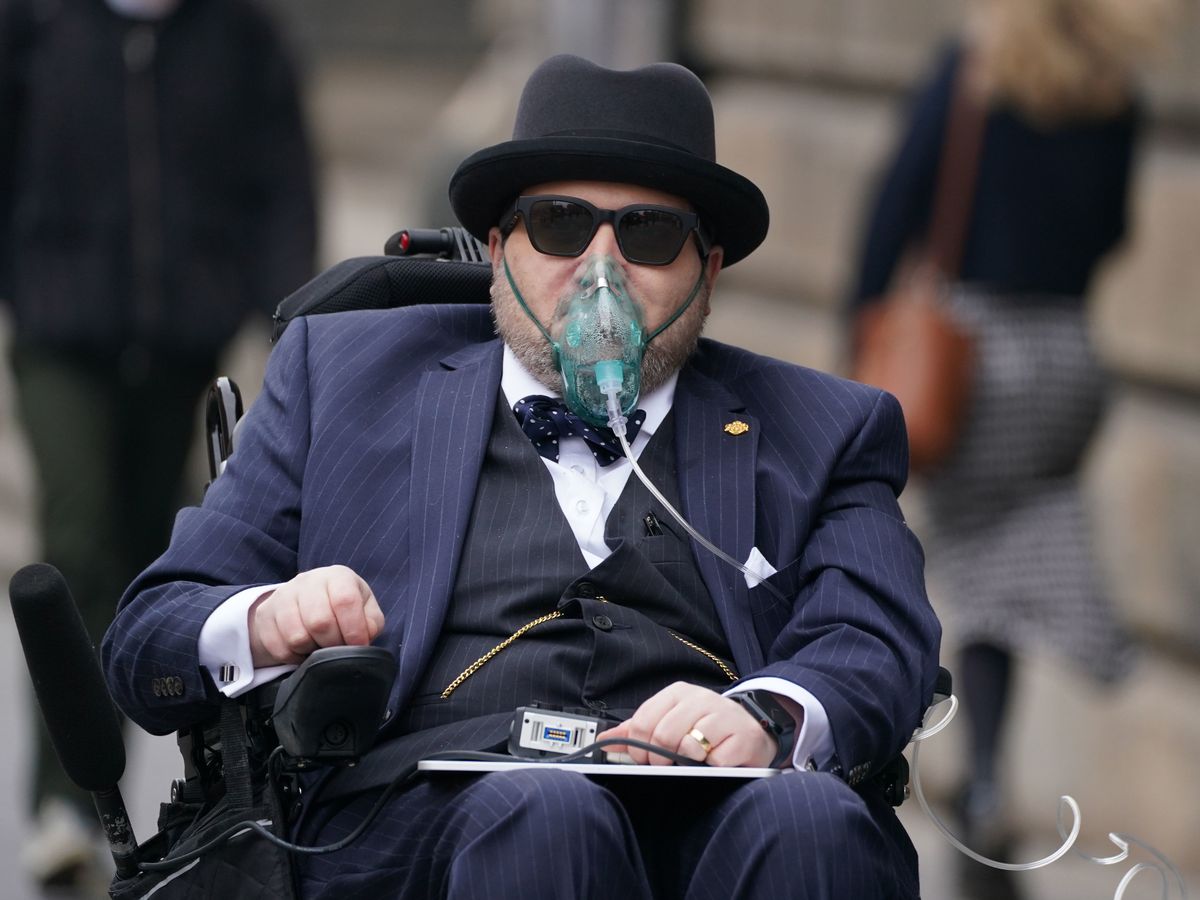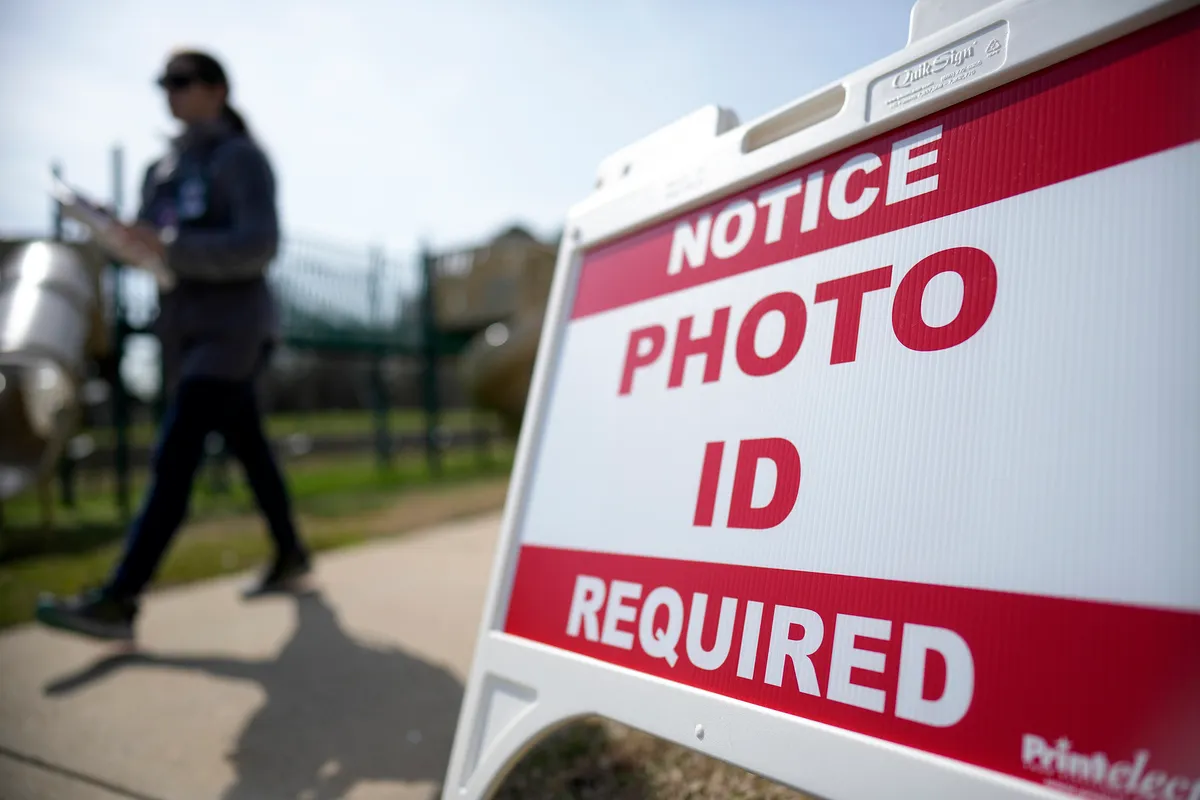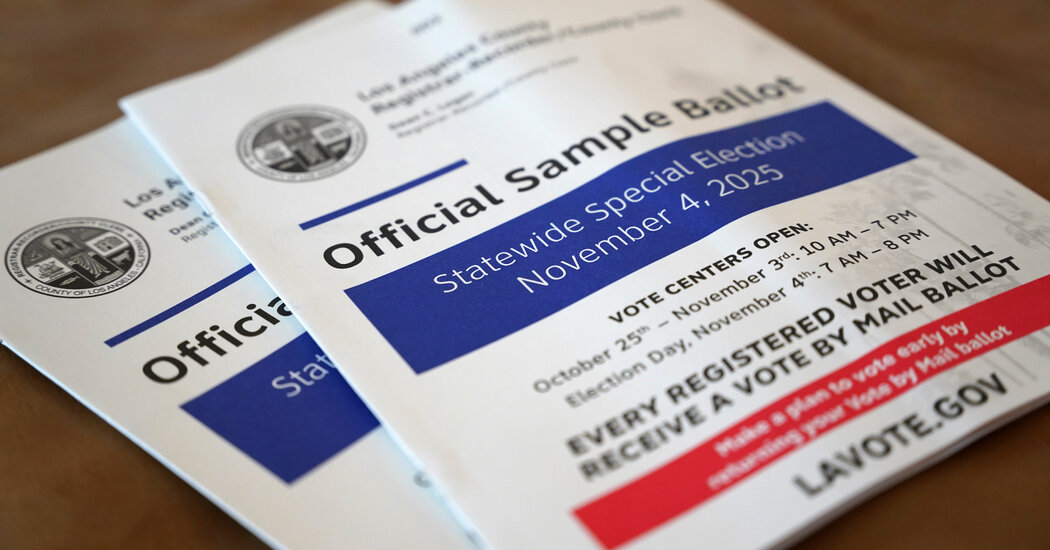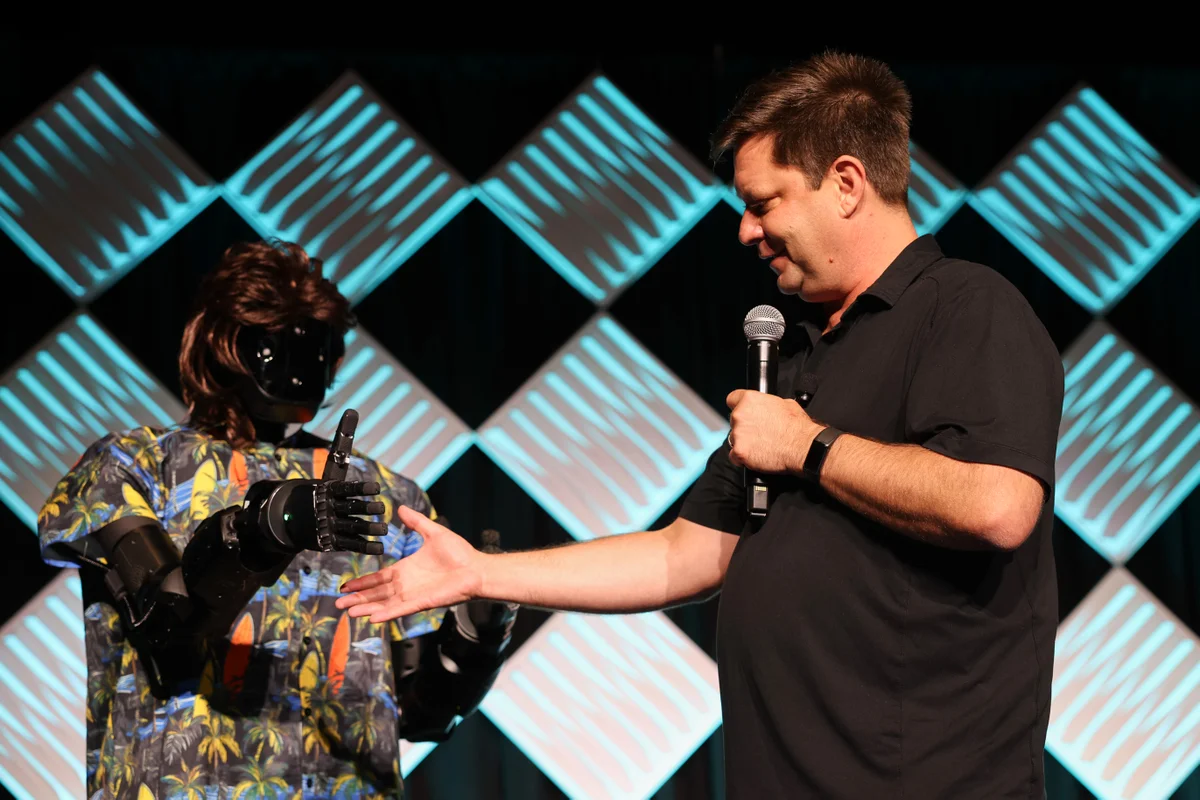Copyright Newsweek
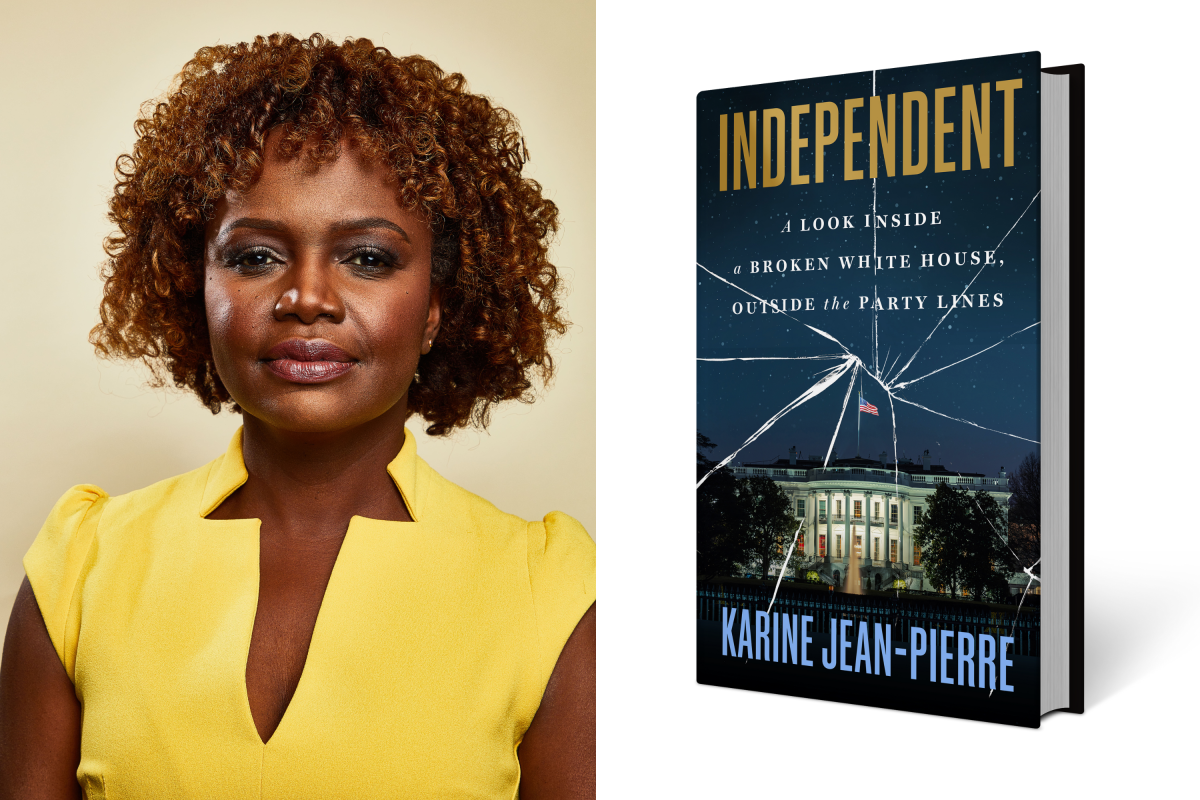
Newsweek spoke with former White House Press Secretary Karine Jean-Pierre about her book, Independent. She served in her role from May 13, 2022 to January 20, 2025, under President Joe Biden - the first openly queer person to hold the role and the first Black woman to hold the role since 1991. The following includes the first half of the full interview and has been edited for clarity. When did you start writing this book, and how did you decide what you were going to include and what you're going to hold back? A: The book writing process itself started in the spring, so I had some time to think about it, but let me just say more broadly: I'm really proud of this book. It talks about not only my time in the White House and what I witnessed, and gives readers a little of behind the scenes about work life in the White House—but it's not a memoir, right? It's not. It does talk about a specific time, but it's not a memoir. It really is about a roadmap forward and how we need to fight back in the moment, so writing it was very much real-time as well, because just think about it: After the White House, I was kind of doing my own thing. I didn't have to do briefings. I was very much involved in my day-to-day personal life. When I would go to the grocery store, or I was at an airport or when I was at my kid's school, people were asking me questions like: How do we fight back? How do we move forward? What does it look like in a space where we are not in this moment? And how do we get on the other side of things? In that regard, in the spring when I started writing it, it was pretty easy because it was real-time writing, and as it relates to the title of the book, Independent, I'd been thinking about that for a while. I had been thinking about my next steps, right? How do I view myself in this moment? Read More Getting it down on paper took some time, but I knew what I wanted to say, and I knew how I wanted to say it, and that is the most important thing about writing this book. How do you think current White House Press Secretary Karoline Leavitt is doing? What do you think she could be doing better? And what do you think she's doing well already? A: I haven't watched any of the briefings. I haven’t, and I think it is up to others to speak to how she's doing the briefing. I just haven't watched it. I really did take some time off once I left the White House. My last briefing, I talked about—I didn't talk about this at the briefing, but I did write an op-ed afterwards about my mom [and her cancer diagnosis], and taking care of her and her health, so that was really my focus. What I would say more broadly was: It was an honor and a privilege of a lifetime to be the White House Press Secretary for the President of the United States. Never before in history has someone who looks like [me] or who came from my background stood behind that lectern, stood at that podium and spoke on behalf of the President of the United States, so I'm grateful that President Biden gave me that opportunity. He gave me the opportunity, yes, but also trusted in me to do the job, and it was a brutal job. People say it's the hardest job in Washington, D.C., or it's one of the hardest jobs in the White House, and you are constantly juggling a chainsaw, right? It's like you're juggling chainsaws on a tightrope with a crowd of people underneath, cheering for that chainsaw every day. But it is also a vital job, and when it's done right, what it should be is a factual job, an accurate and straightforward job on behalf of the American people. That's how I saw the job. I think that's how the Biden administration saw the job. I would say this: I both love the job but wouldn't wish it on my worst enemy. Would you say this book is your kind of announcement of reengagement with politics? And have you spoken much with President Joe Biden or Vice President Kamala Harris since you left the White House? A: I think the book is definitely about reengaging with politics and how you look at the political system. I talk about that a lot in the book, and I really hope people take an opportunity to read it. We are in a moment where we have to look at the two-party system, and we need a two-party system that's working in order for our democracy to move forward. I do think that it's a broken system, and while obviously I've been a Democrat my whole entire life, I'm not looking for a fight here. I'm looking to really pull back and take a look at what's happening. I'm very much aligned with the Democratic Party—that hasn't changed—but I do feel like it's time to question what our leadership is doing. I think it's time to walk. I no longer feel compelled to just be following a party, and I think it's important. I think it's important to question our leadership, and to push them to do the right thing, or to fight for us, or to make sure that they're all in, and that is—I think that is the importance of the book. That's why I feel like I need to step out of the Democratic Party and look from outwards, and just say to myself, “Okay, what is it that I need to question and push forward, what conversations that we need to be having that's not happening right now.? Why is the system broken? Why is it not working for everyone anymore?" I talked through the process about becoming independent. I talked about the importance of having a two-party system, and being independent is incredibly nuanced, right? It is a nuanced idea and thought, but I think it's important to not just blindly follow or not just be in a party because we feel that that's the only way to do this. No, we can step outside from it and push our leadership to do more from the outside. I spoke recently to President Joe Biden. He called me a couple of weeks ago, very recently in September. He called me to check in and tell me that he was proud of me, and it was a very brief call. I haven't spoken to Vice President Harris in some time since the administration, but I have stayed in touch with President Biden. You talk about stepping outside of the party system and stepping away from the Democrats. What do you think about groups like, say, in the Republicans, the Freedom Caucus or the Democrats’ Progressive Caucus, which have this belief that they can step away from the leadership and try to make that kind of change from within? A: Everyone's going to take their own perspective, their own approach to how to move forward, right? I am not throwing the Democrats under the bus in this book. I'm speaking my own truth. I am speaking about what I have experience and what I know from working on the inside. I don't want Republicans to get any more power—I've been very, very clear about that—but I don’t want to be beholden to the Democratic Party or any party. Honestly, more people, I believe, should be like this. They should make parties work for our vote, not expect it, right? They should make sure that our leadership is held to account. That's where I am. I'm very much aligned with the Democratic Party. That's what I write in the book, and I think everybody has to find their own voice in this moment, and it requires all of us to step in and speak very loudly on how we move forward here, and we can't really rely on the leadership. I think this is a moment where the people have to stand up and speak out. I talk about this in the book, too: In ways that we have seen those moments in the past nine to 10 months now. It is a time to really look within, think about where your voice is, and we have to make sure we do that together. That is my kind of movement. Look, everybody's going to do this their own way. I'm not going to speak to any other, you know, committees or PACs outside of the two-party system. What I can speak to is how I see this moment right now. This is a critical moment [for] our democracy. I mean, we have essentially walked into—we are being dragged into an authoritarian regime. That's what we see right now. Our democracy is falling apart because of the leadership in the in the White House, and they've been very clear about that. Just look at Project 2025. They've not been hiding this, and if we are not careful, if we are not paying attention, then we are going to be a shell of what we are as a country in just a few months. So it is not the time to do business as usual. This is why I wrote this book. I wrote this book because I think it's an opportunity for us right now to have a conversation, a real conversation because we don't have this conversation about okay, how do we move forward? Who are we this? The system is broken. How do we fix it? How do we move forward? Then it's gone. You know, the president used to say this all the time: This is an experiment. The U.S.—our democracy—is an experiment. I'm paraphrasing him, but if we do not fight for it, we're going to lose it. There are a number of people who, after the last election, feel disillusioned with the two-party system, and they've considered registering as independent. However, they don't seem ready to commit to a potential third party, which there does seem to be an appetite for if you look at, say, what Elon Musk just did over the summer. Do you believe that appetite to be a real, concrete thing that could be actionable? Or do you think that's always going to be just up to these two parties? A: I actually talk about it in the book, and I say being an independent—it's very nuanced. It's very nuanced for me, and I understand that having a third party could be difficult and even problematic, and that's not what I'm calling for. I'm not calling for a third party. I am saying that we need to have critical thinking and really question our leadership and be independent about that. I can't speak for every independent voter. That's not my place. I can only speak for myself and encourage people to do this in a way [where] we're calling our leadership out. As someone who studied political science, as someone who has been in politics for almost 20 years—I get it. I understand how having an independent party could be really difficult and even problematic, but I do believe in having independent voters and having your voice and having both parties or a party really fight for your vote. That's what I'm talking about, right? And do this in a way that they don't think that we're blindly following them. They know that they have to work for our vote. When it's the last 30 days or last 45 days or even 60 days of an election, especially on the federal level and the presidential election, they go after the independent voters because they think their base is there for them already. So they don't even bother sometimes even talking to us. So I don't think that should be the case. I don't think that they shouldn't be fighting for every vote. And so there's a power of being an independent voter. There really is. And I do understand why people feel disillusioned: 2024 was heartbreaking. It did not go the way that we wanted it to go, but we have to question what happened and what we need to change—not just as a party, but as a nation. Part Two of this interview will run tomorrow.
